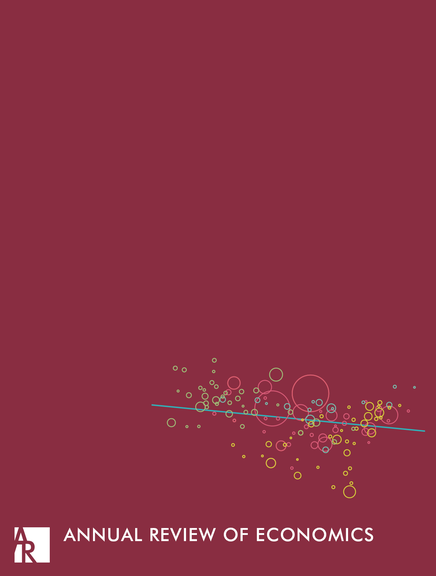Parenting Promotes Social Mobility Within and Across Generations
IF 11.4
2区 经济学
Q1 ECONOMICS
引用次数: 3
Abstract
This article compares early childhood enrichment programs that promote social mobility for disadvantaged children within and across generations. Instead of conducting a standard meta-analysis, we present a harmonized primary data analysis of programs that shape current policy. Our analysis is a template for rigorous syntheses and comparisons across programs. We analyze new long-run life-cycle data collected for iconic programs when participants are middle-aged and their children are in their twenties. The iconic programs are omnibus in nature and offer many services to children and their parents. We compare them with relatively low-cost, more focused home-visiting programs. Participants in programs that enrich home environments grow up with better skills, jobs, earnings, marital stability, and health, as well as reduced participation in crime. The long-run monetized gains are substantially greater than the costs of the iconic programs. A study of focused home-visiting programs that target parents enables us to isolate a crucial component of successful programs: They activate and promote the parenting skills of child caregivers. The home-visiting programs we analyze produce outcomes comparable to those of the iconic omnibus programs. National implementation of the programs with long-run follow-up that we analyze would substantially shrink the overall Black-White earnings gap in the United States.养育子女促进了几代人和几代人之间的社会流动性
这篇文章比较了早期儿童丰富计划,促进社会流动性的弱势儿童内和跨代。我们没有进行标准的元分析,而是对影响当前政策的项目进行了统一的原始数据分析。我们的分析是跨项目严格综合和比较的模板。我们分析了从标志性项目中收集的新的长期生命周期数据,这些项目的参与者是中年人,他们的孩子是20多岁。这些标志性的项目本质上是综合性的,为儿童和他们的父母提供了许多服务。我们将它们与相对低成本、更有针对性的家访项目进行比较。参与丰富家庭环境项目的人在成长过程中拥有更好的技能、工作、收入、婚姻稳定和健康,并减少了犯罪的参与。长期的货币化收益远远大于标志性项目的成本。一项针对父母的重点家访项目的研究使我们能够分离出成功项目的一个关键组成部分:它们激活并提高了儿童照顾者的养育技能。我们分析的家访项目产生的结果与那些标志性的综合项目相当。我们分析,在全国范围内实施这些项目并进行长期跟踪,将大大缩小美国黑人与白人的总体收入差距。
本文章由计算机程序翻译,如有差异,请以英文原文为准。
求助全文
约1分钟内获得全文
求助全文
来源期刊

Annual Review of Economics
ECONOMICS-
CiteScore
9.70
自引率
3.60%
发文量
34
期刊介绍:
The Annual Review of Economics covers significant developments in the field of economics, including macroeconomics and money; microeconomics, including economic psychology; international economics; public finance; health economics; education; economic growth and technological change; economic development; social economics, including culture, institutions, social interaction, and networks; game theory, political economy, and social choice; and more.
 求助内容:
求助内容: 应助结果提醒方式:
应助结果提醒方式:


